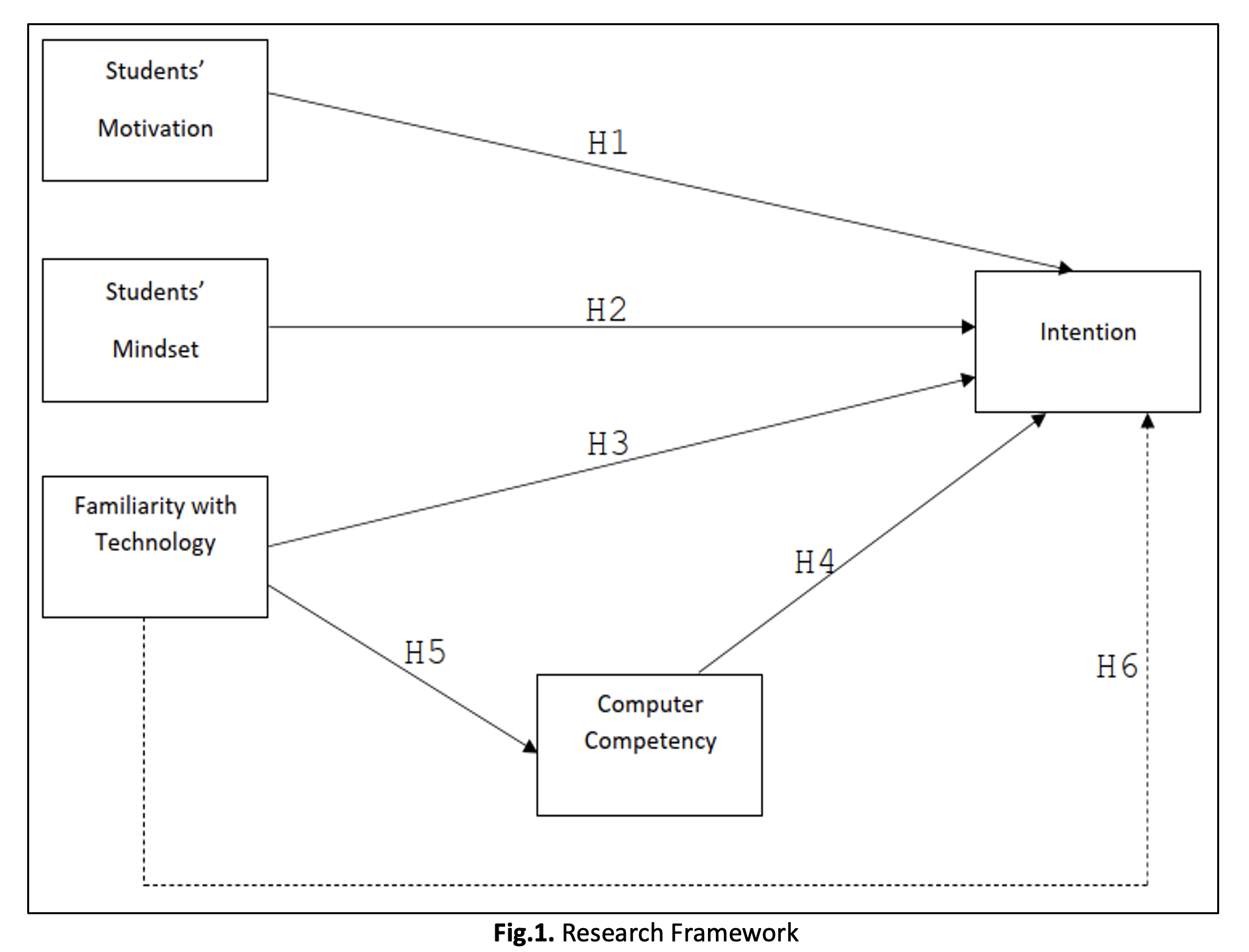Examining the Mediation Effect of Computer Competency on the Familiarity with Technology and the Acceptance of Online Learning Post-COVID-19
DOI:
https://doi.org/10.37934/araset.33.3.293306Keywords:
E-learning, community college, post-COVID-19Abstract
Online learning has been recognised as the most important component in all educational institutions especially after the outbreak of the COVID-19 pandemic. Even if e-learning is thought to be the most effective technique during the pandemic, its implementation faced difficulties and challenges, where not all institutions were in a particularly favourable position when implementing online learning. This research examined the relationship between students' motivation, mindset, computer competency, and technological familiarity, as well as their intention to continue using online learning after COVID-19. This study involved four community colleges in Kelantan, Malaysia. In this study, computer competency was also incorporated as a mediator. Self-administered survey forms were disseminated to 118 students using the convenience sampling method. For the data analysis, partial least square structural equation modelling (SmartPLS) 4.0 was used. The result from this study revealed that the community college students in Kelantan have a high intention to use e-learning after the pandemic. In fact, a positive relationship was found between the students’ motivation, computer competency, and familiarity with technology. Nevertheless, no proof suggested a connection between students' intention and mindset. This research also confirmed a serial mediation relationship between computer competency and familiarity with technology and future intention on online learning adoption.Downloads
Download data is not yet available.

Downloads
Published
2023-11-19
Issue
Section
Articles



























